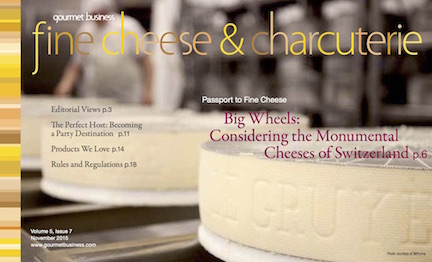
Clear The Obstacles To Free Trade With America
The Wall Street Journal re- ported last month that the U.S. and European Union are close to finalizing a comprehensive trade deal that would eliminate tariffs on 97% of the goods traded across the Atlantic. This would be a welcome development for any foodie such as myself. Apparently one of the major points of contention that still remains for the food portion of the agreement is the EU’s demand that certain food names be protected. The name feta, for example, could only be used on that special blend of sheep and goat’s milk made in Greece. So what’s the problem America? As we reported in our Feta story in a previous edition of this magazine, there is a significant difference in the taste of the authentic Greek feta and the cow’s milk variety made domestically. Why shouldn’t it be obvious to the consumer which one they are getting?
The way I see it, this isn’t too much different than wine, where certain names are reserved for a wine made with the grapes grown in a very select region. Some of these regions are world-renowned for creating fantastic wines, which are high in demand, and obviously limited in supply, leading to a premium price in the market. Sometime grapes growing just across the road, outside of the protected domain, will produce a wine with a completely different flavor profile. I think the consumer deserves to know what they are buying, and the name says it all when it comes to wine.
So, why then, are we opposed to protecting similar name distinctions in foods such as cheese? Two cheeses made in a similar manner with a similar recipe using milk from cows that graze in two completely different environments can and will taste different. Furthermore, when you take into account the affinage that certain cheeses are treated to, the gap in taste and texture becomes even wider.
I would like to propose a settlement. Perhaps the protected foods get to call their product by the protected name subject to the guidelines put forth by the authenticating organization. Then producers from other parts of the world who would like to create their own version must include the word “style” on the packaging to indicate that it’s their own interpretation of the protected name. For instance, we would have feta from Greece, and we would have a feta style cheese made in Wisconsin. I think this would make everyone happy, and serve the interests of consumers at the same time.
We should do the right thing and uphold the protected status of the famous brand foods from around the world, and eliminate tariffs designed to be a barrier to trade once and for all.
David Spencer
Publisher, Gourmet Business
President, HousewaresDirect, Inc.
dspencer@gourmetbusiness.com


